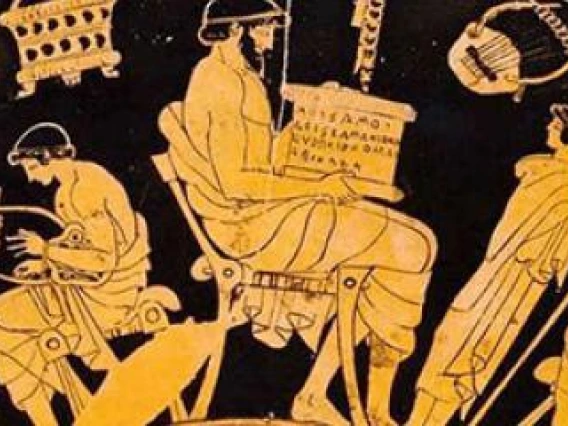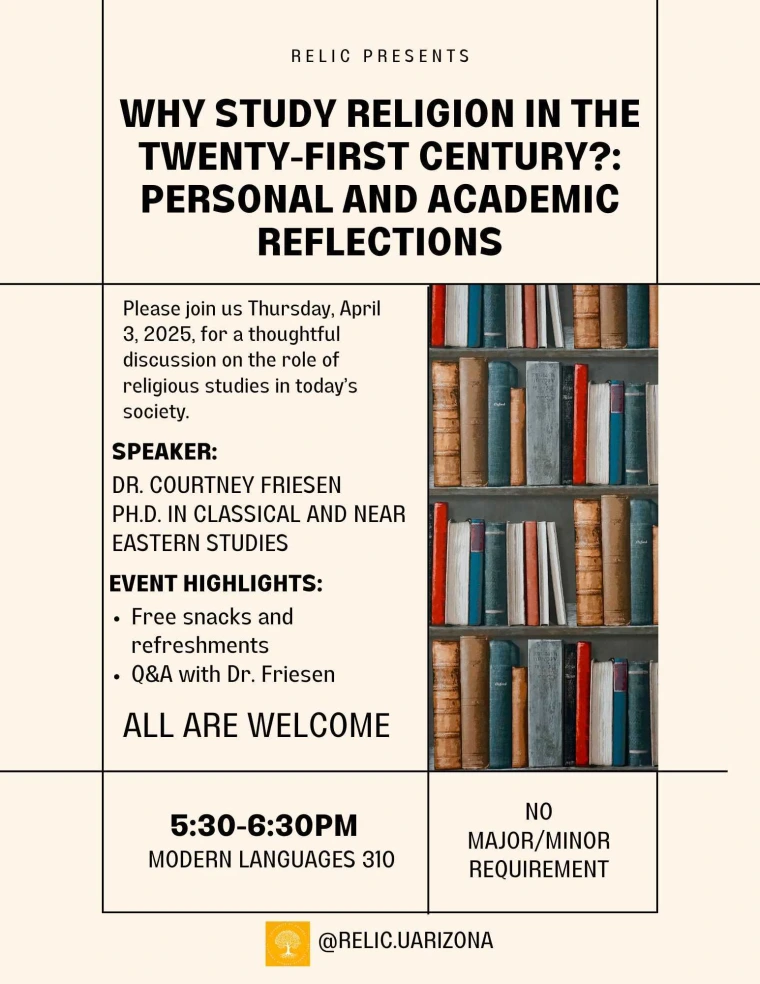Congratulations! 2025 Spring Rombach and Bretall Scholarship Award Winners

The Department of Religious Studies and Classics is happy to announce the winners of the 2025 Spring Lionel Rombach and Ora Bretall Scholarship Awards.
Awardee for the Ora Bretall Scholarship are: Evangeline Harkless, Sid Kabra, Arturo Padilla, and Cassandra Quijada.
Awardees for the Lionel Rombach Scholarship are: Jade Price and Lake Sterling.
Congratulations to our outstanding majors in Religious Studies (BA) and Religious Studies for Health Professionals (BS)!
Read (in their words) how majoring in Religious Studies & RSHP has enriched their lives and studies:
Lake Sterling:
Among many reasons, I have especially loved the multidisciplinary approach that Religious Studies offers. The political history of a certain country and how it interacts with and is influenced by religion and religious movements has been an especially interesting and new lens to understand history. It allows for understanding a large picture in the course of history as well the individual lives of people. Personally, I have particularly loved learning about these political-religious interactions in Korea, Japan, and China.
Jade Price:
I chose to major in Religious Studies because I'm genuinely fascinated by the profound impact religion has had on shaping both history and society. My journey as a history major opened my eyes to how religion can unify people while also being a source of division around the globe. This complexity deepened my interest in exploring how religion influences historical contexts, motivating me to add a second major in Religious Studies. While taking religious course, I've loved diving into the diverse topics within the Religious Studies major, ranging from religious theories to modern religious movements. Many of my class discussions have been lively and engaging, showcasing a wonderful mix of perspectives and interpretations. I truly believe that studying religion is essential for fostering a deeper understanding of our world. Religion touches upon many aspects of life, including politics, ethics, and culture. By examining it thoughtfully, I think that people would be able to tackle a variety of societal issues effectively. Gaining insight into different religious perspectives can pave the way for better community dialogue and cooperation, ultimately promoting a more peaceful and inclusive society.
Sid Kabra:
A year ago, I would never have imagined myself pursuing a major in Religious Studies. As an international student, I came in with a different cultural background, and I’m truly glad I made the decision to explore this field. Studying religion has made me more aware of other people’s emotions, more thoughtful with my words and how I express my opinions. It has helped me become more open to different backgrounds, more inclusive of others’ thoughts, and overall, it has helped me grow into a better human being. I’ve learned to appreciate differences and welcome everyone with an open heart. I believe more students should consider studying Religious Studies, to experience the personal growth and perspective this journey has given me.
Evangeline Harkless:
It is no question that religion has been prevalent in every society and era. Therefore, we must not neglect its implications and how it has formed and reformed culture. I believe we cannot properly assess human behavior, relationships, and individuality without academically dissecting religious thoughts and beliefs. The human connection to the divine has, and never will, leave. The belief in religion has caused people to act in a collective manner that could never be attributed to tangible external factors. Without the academic study of religion, no human or human culture can be understood, and the intimate relationships surrounding the conception of god(s) help us to connect with modern and ancient peoples. Many people, myself included, study religion and through this, become interconnected to those in the past, come to view our world through a spiritual and analytical lens, and begin to understand the nature of humans and the spiritual self.
Cassandra Quijada:
My journey toward majoring in Religious Studies began in high school when I wrote a research essay for my AP Language class on the history of religion in the United States. The assignment ignited a curiosity within me to delve deeper into the subject, prompting me to seek out a field that would broaden my understanding of religious practices, history, and their impact on society. My interest only deepened when I read a book featuring a Religious Studies professor as a character, which further inspired me to explore the discipline. As I conducted more research, I discovered the Religious Studies major and realized it was the perfect fit for my intellectual curiosity and career aspirations.
Arturo Padilla:
Studying Religious Studies for Health Professionals has really opened my eyes to how much religion, spirituality, and culture impact the way people understand health and healing. As someone who's Catholic and reconnecting with my Yaqui background, this major has helped me think about how I can better support Native and Latino communities in ways that respect their beliefs. I've really enjoyed learning how religion shows up in healthcare settings and how important it is for providers to be aware of those dynamics.




